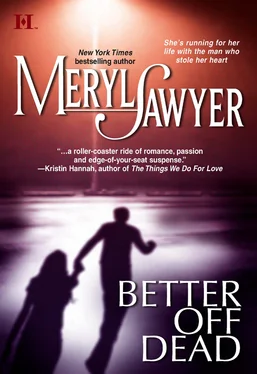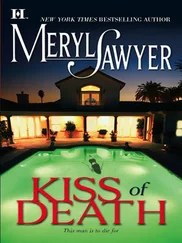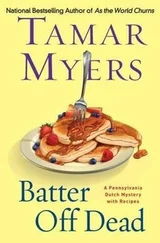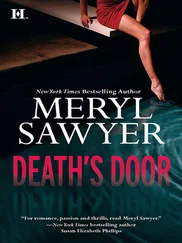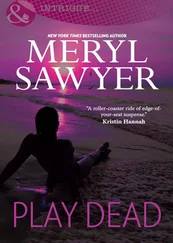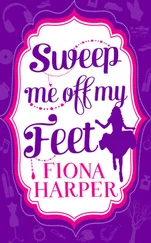“Yeah, sweet cheeks. You can run, but you can’t hide.”
If Brock wanted to find someone, he would. Then that person would find out the bitter truth.
“You’re better off dead.”
LINDSEY WALLACE walked across the plaza that was the heart of Santa Fe’s historic district. She pretended to be casually walking her retriever, but she was checking to see if anyone was following her. Only a handful of people strolled on the streets bracketing the square. None of them seemed to notice her.
Things aren’t always what they appear to be.
A good operative wouldn’t be easy to spot. According to what she’d been told, operatives often traveled in pairs. Frequently they seemed to be ordinary couples.
From behind her shades, she scanned the people in the area. Two disappeared into buildings. Another rounded the corner, heading toward La Fonda Hotel. Satisfied no one was interested in her, Lindsey moved on.
There was a thin line between caution and paranoia, she told herself. Maybe, just maybe, she’d crossed over the line.
No, she wasn’t being neurotic.
She’d been safe for almost a year, but she would be foolish to let down her guard. One woman—an experienced FBI agent—had already been murdered.
She reached Palace Avenue, but stayed on the south side of the street with Zach beside her. She could have crossed to walk under the shady adobe portico of the Palace of the Governors, but she didn’t.
Native American women were setting up their wares in front of the building that dated back to missionary days. On well-worn Navajo rugs, they arranged row after row of silver jewelry that had been manufactured in Malaysia. There was a smattering of pottery and rugs to entice tourists. Little of it was made at the pueblos, most of it not even produced in this country. Their once proud heritage was being lost.
In Navajo she greeted an older woman, lugging her goods to the palace. “Yaa’ eh t’ eeh.”
She smiled slightly and responded in Navajo, “Yaa’eh t’eeh.”
Like the women assembled under the portico, the elderly lady wore the traditional velvet blouse with Concho-style silver buttons and a long skirt that swept across her squaw boots. Her pewter-gray hair was pulled back into the traditional figure eight bun worn by women from the reservation.
Seeing Native America’s arts being lost forever bothered Lindsey. Some of her best artists, like Ben Tallchief, came from the reservation. She supposed they were the future of pueblo art—unique, individual pieces, not tribal art passed down from generation to generation.
Most of the people on the reservation had little to do except hawk trinkets to tourists. From what she could tell, their situation bordered on hopeless, and it was a downer. Depression was her enemy, she warned herself. Not her foremost enemy, but an enemy nevertheless.
The hardest part of being in the Witness Protection Program wasn’t knowing someone would do anything to kill you, the way she’d originally thought. It was not seeing your family, your friends.
The love of your life.
It was not knowing if you ever would see any of them again. Even after the trial, it might not be safe to return home.
“Count your blessings,” she said under her breath.
Until they found work, most people in WITSEC had no money and were forced to rely on the monthly stipend doled out by the Federal Marshals who ran the program. Because she’d been a successful executive with considerable savings, her field contact had arranged to have her funds transferred to the Bank of Santa Fe.
With that money, she’d opened the Dreamcatcher Gallery, which specialized in Southwestern jewelry in contemporary settings. She’d been able to buy the small condo where she and Zach lived. She had a pet, someone to talk to, someone to care about.
Still, the past tore at something deep inside her. You never appreciate what you have until you lose it. Those words had seemed trite. Now she knew how true they were. She forced herself to live in the moment, to appreciate what she had—not what she’d lost.
“Good boy, Zach.”
The golden retriever looked up at her, his soulful eyes full of love. His honey-blond tail whipped from side to side. Canine solace, she thought, the best medicine on earth. She had a home, a gallery, a pet—and a friend. After months of isolation and loneliness, she’d made a friend. Not that she’d expended any effort.
She’d been afraid to get to know someone. What would she say about her past? You never realize how much you talk about your past until you don’t have a previous life to talk about.
With Romero, her past hadn’t mattered. He owned the Crazy Horse Gallery next door to hers in Sena Plaza. He’d blown into her life like a whirling dervish. Romero listened and jabbered nonstop, but he’d never asked questions about her past.
She’d had almost a year—and coaching from Derek—to get used to her new name and come up with a cover story. She’d used the story once on Romero and again when she’d joined the Chamber of Commerce. But because she kept to herself, rarely socializing with anyone except Romero, she hadn’t had to paint herself into a corner with lies.
“You’re late,” Romero called out from his gallery as she unlocked the heavy plank door to the Dreamcatcher Gallery.
“Hey! It’s one minute after ten. Lighten up.”
Every morning when she arrived, she experienced a small thrill at having found this unique spot in a two-story building that had been divided into shops and galleries. Dating back to the seventeenth century, Sena Plaza was a rectangular adobe structure with a lovely interior courtyard. Built in the Spanish Colonial era, it featured the original hand-hewn beams and trusses, black Andalusian iron, and plank floors burnished smooth over centuries by countless soles.
She stepped inside what—in only one of many incarnations—had been a shoe store before she’d leased it. Before that, it had been part of Romero’s larger gallery, and between them was an adjoining door. They kept it open during the day. When business was slow, they talked and helped each other with displays.
She hadn’t realized how much she’d missed having someone intelligent to talk to. Romero was well-read, cosmopolitan, and never failed to make her smile. In many ways, he reminded her of her long-dead father. Hollow emptiness welled up inside her, the way it often did when she recalled her parents’ deaths. Since she’d met Romero, it had lessened. She didn’t want to regress, so she tamped down the thoughts.
Lindsey unhooked Zach’s leash and put it in the second drawer of her sleek chrome and glass desk, and opened the connecting door. Zach trotted along behind her.
“Is coffee ready?” she asked, although she knew Romero made it a point to arrive an hour before he opened and brew a pot of Kona coffee. The fragrant scent hovered in the summer air that was still cool thanks to the building’s thick adobe walls.
“Sure. Pour yourself a cup.”
She walked over to the Southwestern style hutch in the alcove where Romero kept the coffee. She’d decorated her gallery in contemporary fashion, aiming for a stark contrast with the ancient building. Romero, on the other hand, had used antiques from the Spanish colonial period, when Sena Plaza had been constructed by the Conquistadors.
“It’s going to be a warm day,” he commented, and she nodded.
Romero had a full head of white hair that made his complexion seem darker than it was. He was a tall man in his late fifties and slightly stooped, the way some older men are. He proudly traced his ancestors back to one of the original Spanish land grant families. She doubted anyone knew local history as well as Romero did. Certainly, no one could talk about it so colorfully.
Читать дальше
